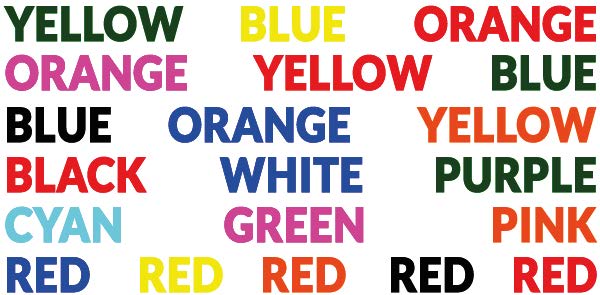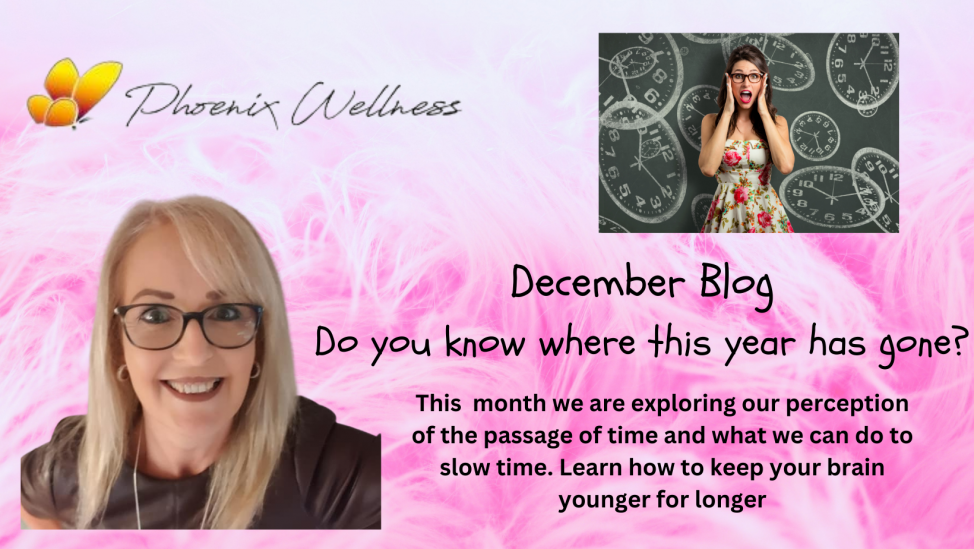
Welcome to December and our last blog of the year. I’m not sure I know exactly where this year has gone, and that thought got me reflecting on why is it that as we get older, time seems to pass so much quicker than it used to?
Do you remember as a child when the school summer holiday seemed to last forever, when the weather was always good?
Is this a case of looking back with rose tinted glasses or is there actually some science behind the way we perceive time?
Well yes is the simple answer. Science is behind this, and it makes total sense.
When we are young, everything is new and exciting. Life is full of new experiences which come at us at great speed. With every new experience our brains are working overtime, creating new neural pathways which means the sensory signals don’t need to span such long distances to be processed giving us the perception of time passing slowly. In some respects, this doesn’t make sense that the more new experiences our brains are asked to process, the slower time seems to pass!
But stop and think about time differently. Think about it like the frames in a movie and you can start to see how this might work. The more frames we see per second the slower the image appears to pass. The fewer frames per second, the faster the image moves. As children we lay down more memory frames per unit of time, so when we remember events, we recall more visual data. It is the accumulation of the visual data, or lack of as we age, that causes the perception of time passing more rapidly.
When we are young, each second of time is packed with more images relative to our older selves – everything is new and exciting whereas as adults, we’ve literally seen it all before, so we filter out these images, making less visual recall. Like a slow-motion camera captures more frames per second than a regular speed one, time appears to pass more slowly when the film is played back. The cause of this shift is due to the size and complexity of our brains’ neural networks which increase as we mature. This means signals must travel greater distances in our brains, spanning more pathways, thus slowing processing. Ageing also causes nerves to accumulate damage that creates greater resistance to the flow of signals.
Next time you find yourself saying “I don’t know where the time has gone”, reassure yourself this is natural.
What can we do to keep our brains “young at heart”

Brain health is something that is vitally important to us all throughout our lives, but particularly as we age and new experiences can be farther apart, leading to our perception of time passing quicker.
There are several things we can do to help our brains stay younger than our biological age.
- Eat to support your brain – this is important and is as much about maintaining a health diet as it is about guarding against the substances that can damage our brain function. Try to avoid excessive alcohol, nicotine, or other substance abuse. These will all impair our cognitive function and reactions over time.
- Eat regularly – our brain represents just 2% of our total body weight, but it accounts for 20% of our body’s energy use. On a typical day our brain uses around 320 calories just to think, let alone everything else it does unconsciously. So, eating regularly and making sure we are taking in enough calories to help our brain is essential. When we don’t eat regularly or consume enough calories it can start to impair our cognitive function making decision making harder or our thought processes slower.
- Stay hydrated – this is a big one. 90% of our body is made up of water, with our brain being 75% water. You can see why staying hydrated is good for the function of our body and especially our brain. When we become dehydrated our blood doesn’t flow as well, so valuable oxygen doesn’t get around our system quickly making us feel sluggish and lacking energy. When we don’t keep our brain hydrated we can start to experience memory lapses, loss of concentration, higher risk of making mistakes plus you will start to feel the physical symptoms of dehydration like dizziness, blurred vision, and headaches. When you have a headache, check if you’ve drunk enough water – 2 litres per day is the minimum recommended.
But even if we are looking after our brain through a healthy diet and we’re giving ourselves natural breaks, so we don’t feel overwhelmed, this won’t naturally stop the speed at which time seems to pass. To do this we need to flex our neural pathways, get our brain doing new things so it can create new experiences and develop greater neural plasticity. Remember it is the number of new experiences that create the perception of time slowing. Building new neural pathways is something we can all do regardless of our age but of course, we need to make sure we are giving our brain the best possible starting point and that’s where the tips above matter.
Once we have good healthy foundations supporting our brain physically, we can start to flex those synapses and create new pathways by trying new things. Think abut some of the following to help boost your brain power and slow the passage of time:
- Learning something new, a new skill, a hobby, a musical instrument or join a dance class. Anything that gets you using your brain in a different way will create new neural pathways.
- Meeting someone new, getting to know them is great for our wellbeing and building new connections keeps life interesting and fun.
- Taking up reading or doing puzzles, both are great for keeping those neural pathways working and growing, plus they help our problem-solving capabilities.
- Practicing meditation or mindfulness, both are great because they encourage us to focus our attention on one activity to the exclusion of everything else. The act of focusing on one thing and slowing our breathing, slows our nervous system, literally giving our mind and body a break.
- Improving our balance and coordination, this is not only good for getting our brain and body working in harmony but will also help guard against osteoporosis as we age. Practise standing on one leg for 10 seconds with your eyes open, then do the same with your eyes closed. This might feel odd at first, but it really works connecting mind and body. You can try other games where your brain is challenged – a good one is where you say the colour not the word. This is great as it tests your ability to coordinate our thinking and optical stimuli and inputs at the same time. Give it a go now and see if you can do it – most of us can do it with practice or will stumble over one colour or one word!

Why is all this important?
Practising using our brain in new and different ways helps to keep our brain younger for longer and can even help in the fight against disorders such as Alzheimer’s, which postmenopausal woman are at greater risk of developing.
Learning new skills or building new experiences again keeps us younger, makes us more interesting to be around, and of course gives our brain a workout which could help to slow the passage of time, or at least change our perception of how time passes. Of course, it also gives us great stories and memories that we can share with others and enjoy recalling as we get older.
All these things will help to boost our overall wellbeing as we age. We all want an amazing life, and we want to enjoy that life for longer, so keeping our mind and body fit and healthy goes a long way towards achieving this.
For more support and help
If you are a menopausal woman and want to learn more about how to look after your wellbeing through this critical stage of your life, or if you are simply a woman who wants to live her life to the full regardless of her age or stage of life, then check out our courses and the Phoenix Wellbeing Café.

